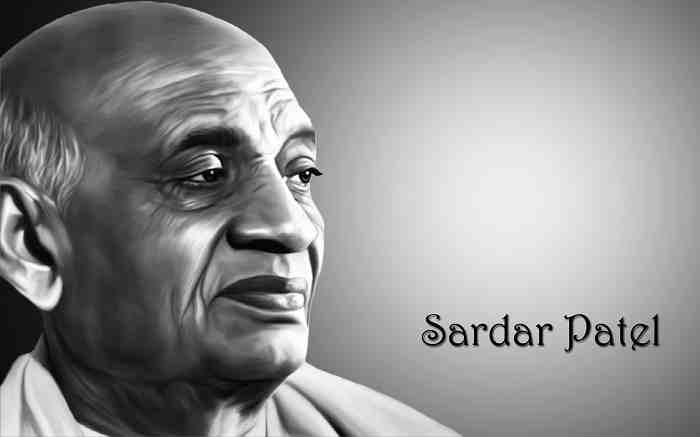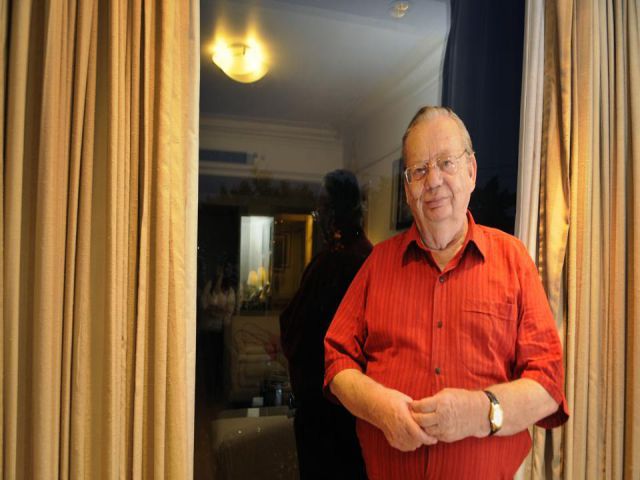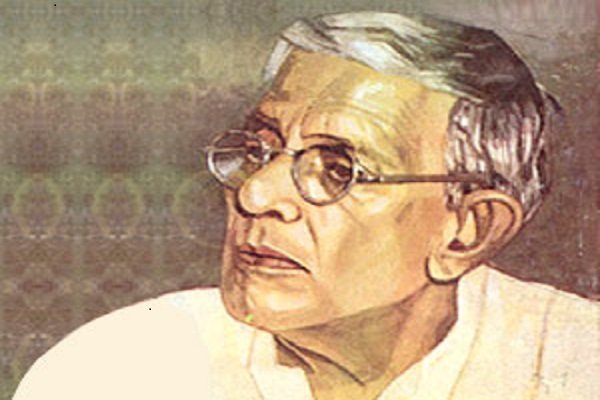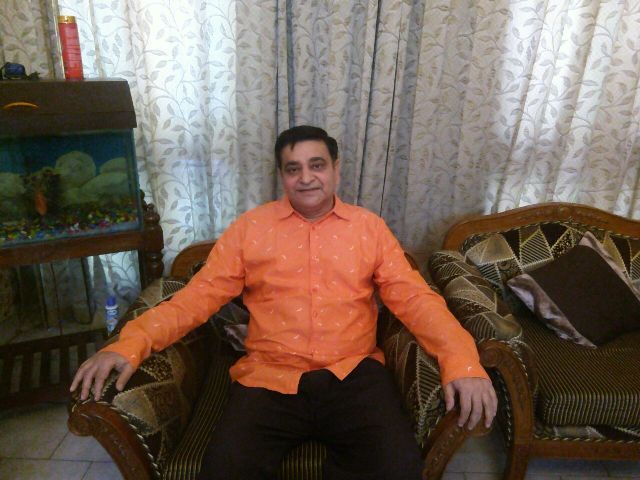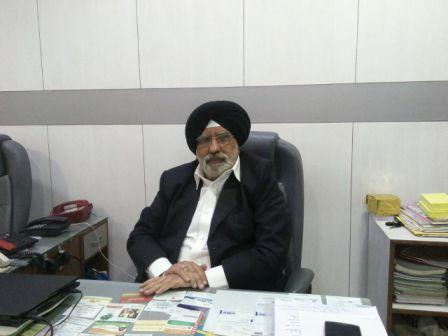Renowed Chef Fabio Antonini

Renowed Chef Fabio Antonini
Renowed Chef Fabio Antonini a member of Slow Food Project, Chef Alliance has joined forces with NESFAS, Cook Alliance, Shillong to conduct an exclusive fine dining experience at the NESFAS Compound in Shillong, Meghalaya.

Chef Antonini who also owns Pianeta Terra (Planet Earth) in Amsterdam, Netherlands. Plans to enthrall 80 paid dinners not with just his cooking skills and traditions from Italy by exclusively using local ingredients. “However it’s a showcase of a lot of love and feeling more than technique today” the chef mentions.
Can you tell us how you came about with your association with Slow Food and NESFAS?
In August 2000, we took a challenge between my wife and friend to open an organic restaurant. We faced some difficulties at the beginning. We had to restart by rebuilding our network. We approached the farmers and producers at the beginning by bringing them together through trust and rebuilding new relationships. During the process we realize that many were involve with the Slow Food Movement. While NESFAS, they put an accent on indigenous cultures even though the goals are similar with Slow Food Movement.

Is there any difference between Slow Food and Organic?
Yes, there is a difference. Slow Food is an International Movement and the goal of Slow Food and NESFAS is preserving traditional agriculture, biodiversity, protecting small farmers by giving them new identity and provide the direct link from the farmer, producer, restaurant and the consumer. To also provide a database an ARK of Taste as called by Slow Food.
Organic is usually a term used for certification related for big food production based on quantity, time and money.
What is the difference between Fusion cooking?
I don’t like Fusion cooking it’s not my style. I enjoy in just the reinterpretation and implementation of local ingredients in the place I am working at, like here in Shillong. For me Fusion cooking is a mixing of ingredients in such a way that they get loose from the roots and is the re-interpretation from the Chef. But I respect their work. It’s like I could use ricotta cheese to make the ravioli for today however I want to use the paneer which is similar and it’s local.
How do you get inspiration to come up with new ingredients?
I am inspired by everything from the simplest acts like this interview we are doing, to sleeping, walking to the markets. I believe in traditions, I am always inspired by the past of how people used to do things and how to improve those traditions for a better world now.

What’s your favorite kitchen equipment?
As any chef, it’s the knives I collect them, sharpen it myself.
You have a diverse exposure to various cuisines from your childhood days in Rome to Holland and now here in Shillong, India. Is there any dish that inspires you?
In my kitchen there are no cooking books, I believe in skills. We develop a taste through imprinting and training, it’s like working. You develop a habit as time goes. Like starting to walk as a baby. Like taste we develop our senses when we are young which helps us to appreciate certain taste. We keep it as a treasure, a knowledge. It is with this that you go on with life. It does not mean you are restricted by it. The world is big, the more you want to know and more you want to learn.

Today here at NESFAS is the same approach as I approach every day in the kitchen. Its re-interpreting the local ingredients and using the skills I have learn over the years from even way back in my childhood. To provide an accent, it’s those curiosities.
In the food business how do you decide what is on the menu and sells?
It’s complicated. It is a combination of quite lot of things part of it is inspiration and traveling. Learning from what is around you and see how to apply. Taste is important, for me you have to be conscious of what you eat, that makes you feel good. Try and select a combination of what you like, what people would like and what is happening around us.

It’s to gather together all these and put it on the menu. The question they must ask themselves is why they are cooking it. You have at times to experiment, to educate, to show and to make them understand your work, the consumer. Also through cooking to make people understand the farmers who are producing the food. Once this chain is linked then anything is possible.
Since there are lot of young cooks who are entering into the food industry. What suggestion would you give them when it comes to being a Chef?
This is another aspect of the industry. The reality of it. Cooking is like a game. And in every game there are rules. It takes time, it’s a long process. If you are eager to learn something every day. In 10years time that is the knowledge you will gain. If you don’t open your eyes and are peeling a potato and just collecting your salary. In 30 years you will be still peeling a potato and not learning.
Is there a difference between a cook and a Chef?
There is not much difference, it just for me a good chef should be a good cook. I believe in cooks, Chefs are good for TV and cooks are good for everywhere. They learn to adapt to ingredients.
What is the most exotic food you have tried and would you even put it in your menu?
In Africa, I have had a lot of insects in. In India, there are a lot of spices and a lot of things that I have seen at Indian markets which are inspirational. Then in Delhi, saw noodles on ice-cream, believe it was chocolate kulfi which was interesting. I would like to try it out in my kitchen when I go back, spaghetti and ice-cream.
I Notice your love for photography. Is there anything you have learned from it that you try and incorporate into your cooking?
I started photography at age of 13 same as my love for cooking, they have always complemented each other. Cooking inspires me quite a lot. I like taking photographs of raw ingredients and vegetables since now I have a website. I decided to document what I see along the way.
In every Italian kitchen. It’s the mother and grandmother that brings the family together is there a comfort food for you?
In Italy, I like these small things that one prepares during festivities that I still love today. A lot of fried stuff. I used to remember my grandmother would wake up early at 6am and be preparing these dishes. The aroma of these dishes and cakes for these carnival it stays with me all the time.
It is also the aroma of fresh bread. In the restaurant we make fresh bread with sourdough. It’s my obsession. I always search for that aroma that I remember lingers in my mind when I grew up at home. That smell is comforting. Because you knew someone was in the kitchen taking care of you. It makes me feel good. That is comfort food for me.


